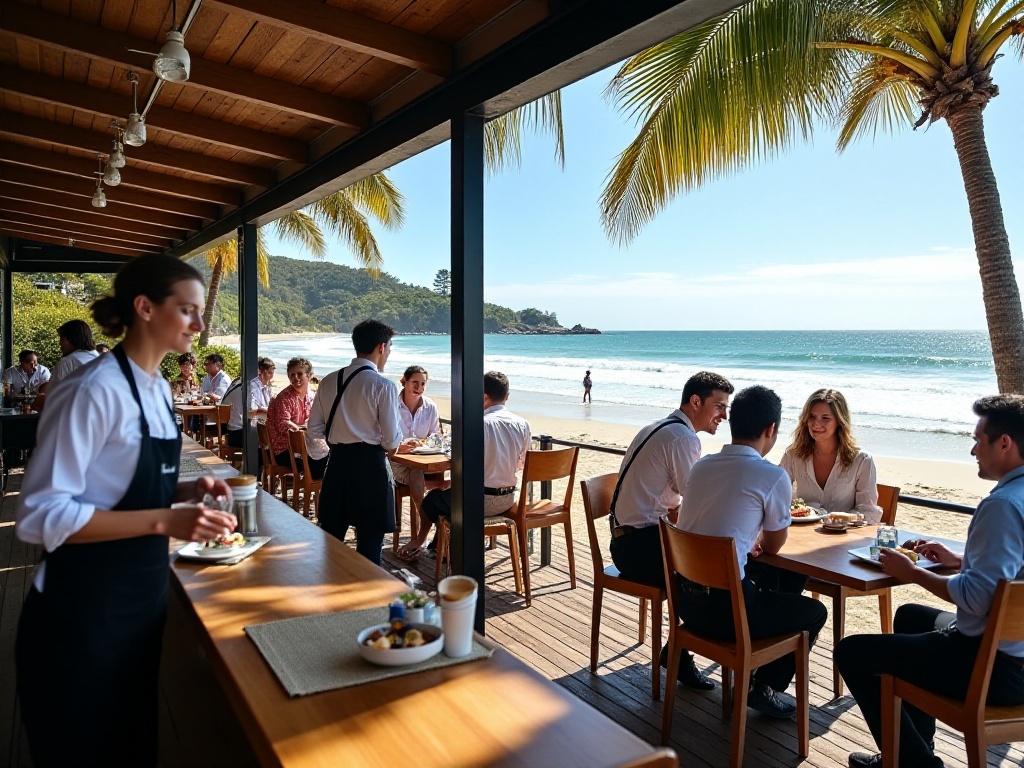
What is a Working Holiday Visa
Do you often watch travel bloggers' videos and envy their free lifestyle around the world? A Working Holiday Visa (WHV) is your passport to freedom, specially designed for young adventurous souls like us who crave freedom and adventure. It not only allows you to find legal work opportunities abroad but, more importantly, lets you truly immerse yourself in local life and experience a different way of living.
I remember when I first learned about WHV, I was so excited I couldn't sleep. Imagine being a surf instructor on Australia's Gold Coast, interacting daily with surf enthusiasts from around the world; or harvesting grapes in New Zealand's vineyards, experiencing authentic rural life; or even working as a guide in Canada's Banff National Park, leading tourists to explore the magnificent Rocky Mountains. These jobs that sound like vacations can actually become reality through a WHV!
I know a friend who worked at a traditional Japanese inn through a WHV, living and working alongside Japanese people daily. Not only did her Japanese improve dramatically, but she also gained deep insights into Japanese etiquette, culture, and work attitudes. She says this year-long experience gave her a whole new perspective on life and helped her find the lifestyle she truly wanted.
Why Choose a Working Holiday Visa
As an experienced traveler who has visited over twenty countries, I can confidently say that a WHV is absolutely the perfect way for young people to explore the world, bar none.
First, a WHV gives you an entire year. Think about it - regular tourist visas only allow you to stay for a month at most, and you often have to head home just as you're getting used to the local rhythm of life. But with a WHV, you have enough time to deeply experience a place. My friend Xiaolin worked in Brisbane, Australia for a year, and now she knows everything about the local lifestyle. From morning markets to nightclubs, from beach culture to locals' favorite hidden food spots, she can talk about it all day.
Second, a WHV allows you to support yourself through your own work. This experience is completely different from just being a tourist. I know a guy who worked as a chef at a Japanese restaurant in Vancouver, starting from washing dishes and now able to make sushi independently. He not only supports himself monthly but also saves enough money to go skiing in Banff on weekends. The feeling of being able to live in a foreign country through your own abilities gives you a special sense of achievement.
Most importantly, a WHV provides an excellent opportunity to build an international network. During your time working abroad, you'll meet friends from all over the world. I have a friend who met a German girl while working at a bar in the UK. They're now business partners running a successful cross-border e-commerce company. These kinds of opportunities are hard to come by during regular travel.
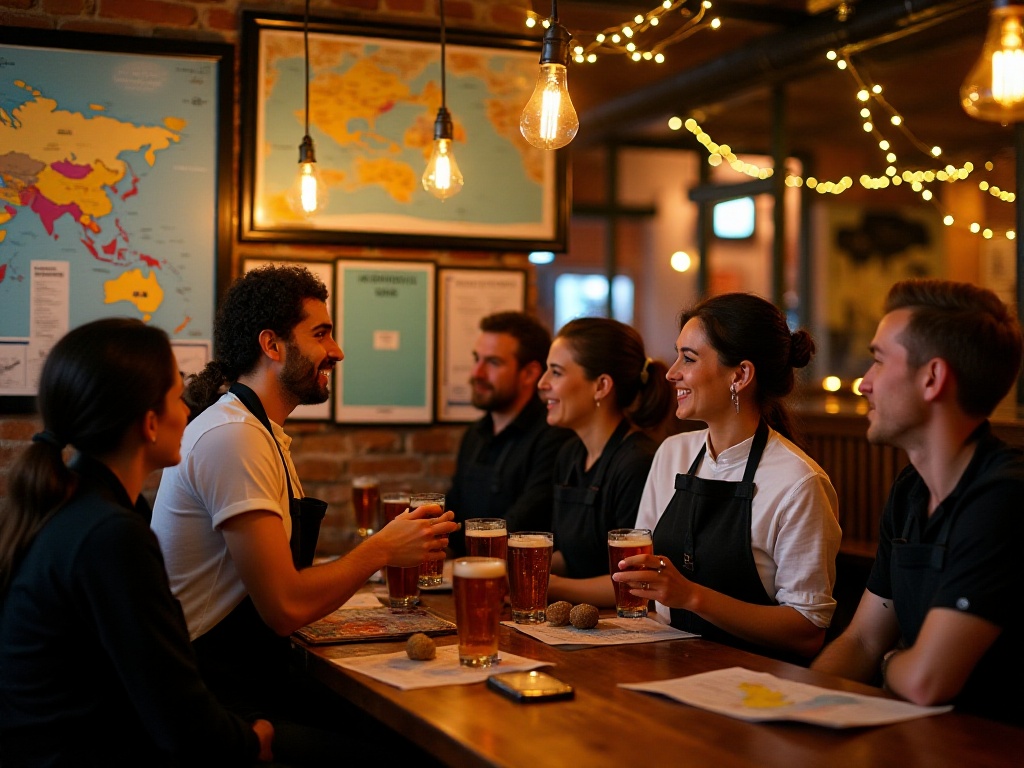
Application Guide
When it comes to applying for a WHV, first confirm if you meet the basic requirements. Generally, applicants need to be between 18-30 years old (some countries like Canada and Ireland have extended this to 35), have no dependent children, and hold a passport from a country that has a reciprocal agreement with the destination country.
Different countries' WHV programs have their own characteristics. Australia's program is probably the most popular, attracting thousands of young people each year. The Australian WHV is relatively easy to apply for, and if you work in specific regions on farms, you have the opportunity to apply for a second or even third year visa extension. A friend of mine worked in an apple orchard in Tasmania for three months and successfully obtained a second-year visa.
Canada's WHV is known for its comprehensive welfare system. While working in Canada, you can enjoy the same medical insurance as locals. Plus, Canada's minimum wage standards are quite good, allowing for a decent living even in big cities like Vancouver.
While Japan's WHV has fewer spots available, it's an excellent choice for young people who love Japanese culture. You can work in anime shops in Tokyo or as a sales assistant in kimono shops in Kyoto, truly immersing yourself in Japanese life.
New Zealand's WHV is known for its beautiful natural environment and friendly work atmosphere. In New Zealand, you can work at ski resorts in Queenstown or as a server at yacht clubs in Auckland. New Zealanders' work pace is relatively relaxed, perfect for young people who want to enjoy life.
When applying for a WHV, required materials typically include: valid passport (validity must exceed intended stay), criminal record check, health examination certificate, proof of sufficient funds (requirements vary by country, usually between $5,000-$10,000), and valid travel insurance. It's recommended to start preparing these materials at least 3 months in advance, as some certifications may take time to process.

Job Opportunities
The greatest appeal of WHVs is the rich variety of work opportunities available. From cities to rural areas, from professional skills to manual labor, you can find suitable work in almost any field.
In cities, the most common jobs include food service, hotel reception, and retail sales. The advantage of these jobs is the relatively comfortable working environment and the opportunity to meet many people, improving language skills and communication abilities. I know a girl who worked as a waitress at an Italian restaurant in Melbourne, and within six months she could chat with customers in both English and Italian.
If you enjoy outdoor activities, consider working at ski resorts, surf schools, or adventure parks. While these jobs may be physically demanding, they often offer good pay and exciting work environments. I have a friend who worked as a ski instructor at Whistler in Canada for a season, not only dramatically improving his skiing skills but also meeting many like-minded friends.
Farm work, though demanding, is also a choice for many WHV holders. There are several reasons: first, farm work usually pays by piece rate, so if you're efficient, the income can be quite good; second, many farms provide free food and accommodation, saving a lot on living expenses; most importantly, in Australia, completing specified periods of farm work allows you to apply for visa extensions, which is great for those wanting to extend their stay.
For those with professional skills, WHVs also provide opportunities to showcase their talents. For example, if you have experience in hair and nail care, you can work in beauty salons; if you know massage, you can apply at spa centers; if you're good at teaching Chinese, you can work as a teacher at language schools. I know a girl who studied design and found work at an advertising company in Sydney through a WHV, and has now become a permanent employee.
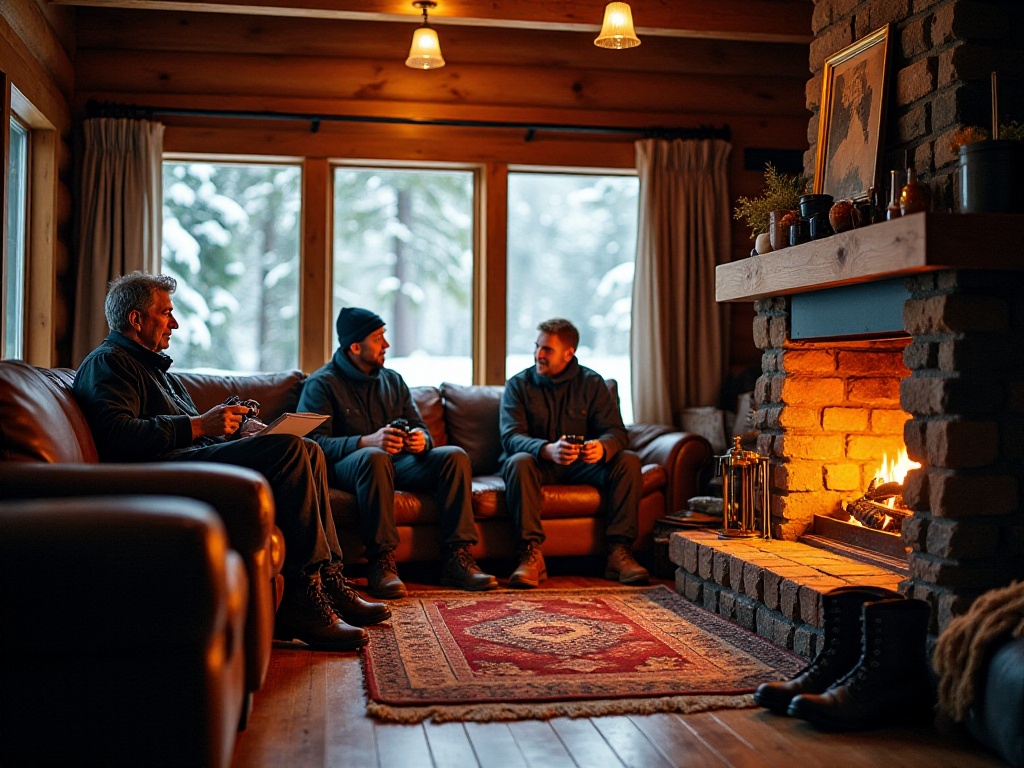
Life Support
Moving to a foreign country, many people worry about how to quickly adapt to local life. Don't worry, there are many organizations and platforms that can help you.
First is the housing issue. Besides traditional rental websites, many cities now have rental platforms specifically for WHV holders. These platforms usually offer short-term leases, and landlords are generally friendly to WHV holders. I suggest staying in hostels or short-term rentals when first arriving in a city, then finding long-term accommodation once you're familiar with the local environment.
There are many channels for finding work. Besides official job websites in each country, there are many job platforms specifically for WHV holders. Employers on these platforms know about your WHV status and won't hold it against you that you can only work for a year. Social media is also helpful, as many cities have WHV mutual aid groups that regularly post job information.
In terms of daily life, most cities have organizations specifically serving foreigners that can help you with banking, phone cards, transportation cards, and other procedures. Some organizations even offer free language courses and job search guidance. I recommend researching these organizations online before departure, so you can start adapting to your new life as soon as you arrive.
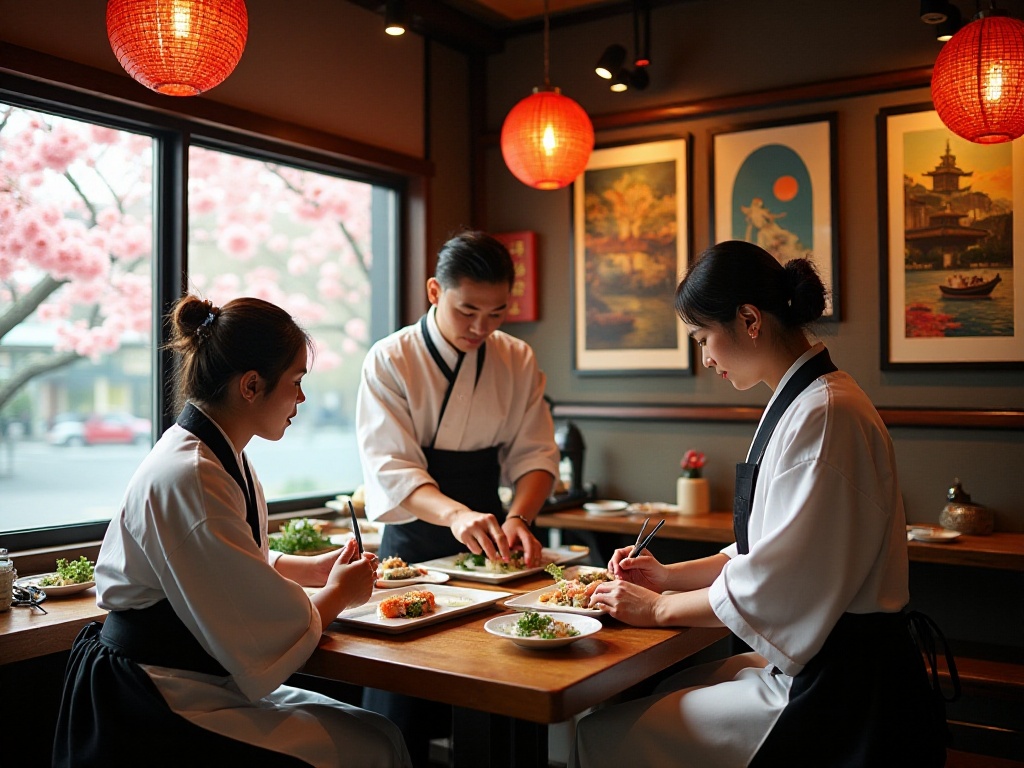
Planning Advice
If you decide to apply for a WHV, I recommend thorough preparation. First, assess your language skills. While not all jobs require high language proficiency, basic communication skills are essential. It's recommended to reach a level where you can handle daily conversations before departure.
Second is financial preparation. Although WHVs allow you to work and earn money locally, you still need startup funds. This money needs to cover your airfare, first month's accommodation, living expenses, and costs while job hunting. Generally, it's recommended to prepare at least $10,000.
Time management is also important. I suggest dividing the year into several phases: first month for adapting to the environment and finding work, next 6-8 months focusing on working and saving money, and the last few months for traveling and enjoying the country's scenery.
Note that different countries' WHV policies may change at any time, so be sure to check the latest policies before applying. It's recommended to follow the immigration department's official website of your target country or get updated information through reliable agencies.

Future Outlook
As globalization deepens, WHV programs will undoubtedly become more widespread and refined. More countries are beginning to value cultural exchange among young people, and the types and quotas of WHV programs continue to increase.
We're already seeing new trends: some countries are introducing specialized WHVs, such as tech visas and entrepreneurship visas; some countries are relaxing age restrictions, allowing more people to participate in these programs.
A WHV is not just a way to travel, but a lifestyle attitude. It represents young people's pursuit of freedom, curiosity about the world, and courage to step out of their comfort zones. Through a WHV, you can gain valuable overseas work experience and improve language skills, but more importantly, develop independent living abilities and a broader international perspective.
Many friends I know have changed their life trajectories through WHV experiences: some found their true passion in work abroad, some met like-minded business partners, and others gained clearer understanding of what they want after experiencing different lifestyles.
So, if you're at a crossroads in life, consider applying for a WHV and give yourself a year to explore the world and discover a different side of yourself. Perhaps during this journey, you'll find life possibilities more exciting than you imagined.
Remember, youth is your greatest asset, so take the chance while you can and bravely step out to see the world. The world is so big, and there's always a place waiting for you to discover its beauty. Let's look forward to what amazing stories your WHV journey will bring.
Next
The Great Resurgence: International Business Travel's Triumphant Return
In the wake of a global pandemic that brought the world to a standstill, a new chapter in international business travel is unfolding. As borders reopen and economies rebound, the corporate world is witnessing a renaissance of global mobility, driven by an insatiable appetite for face-to-face interactions and the irreplaceable value of in-person connections.
Complete Guide to New Zealand Working Holiday: How to Exchange Work for a Deep Travel Experience
A comprehensive guide to working holiday programs, covering core concepts, visa requirements, eligibility criteria, and practical applications with detailed examples from Australia and New Zealand working holiday schemes
Complete Guide to Working Holiday Visas: Travel the World While Earning Money - A First Travel Guide for Young People
A comprehensive guide to Working Holiday programs, covering visa requirements, popular destinations including Australia and New Zealand, employment opportunities, and support services for participants aged 18-30
Next

The Great Resurgence: International Business Travel's Triumphant Return
In the wake of a global pandemic that brought the world to a standstill, a new chapter in international business travel is unfolding. As borders reopen and economies rebound, the corporate world is witnessing a renaissance of global mobility, driven by an insatiable appetite for face-to-face interactions and the irreplaceable value of in-person connections.

Complete Guide to New Zealand Working Holiday: How to Exchange Work for a Deep Travel Experience
A comprehensive guide to working holiday programs, covering core concepts, visa requirements, eligibility criteria, and practical applications with detailed examples from Australia and New Zealand working holiday schemes
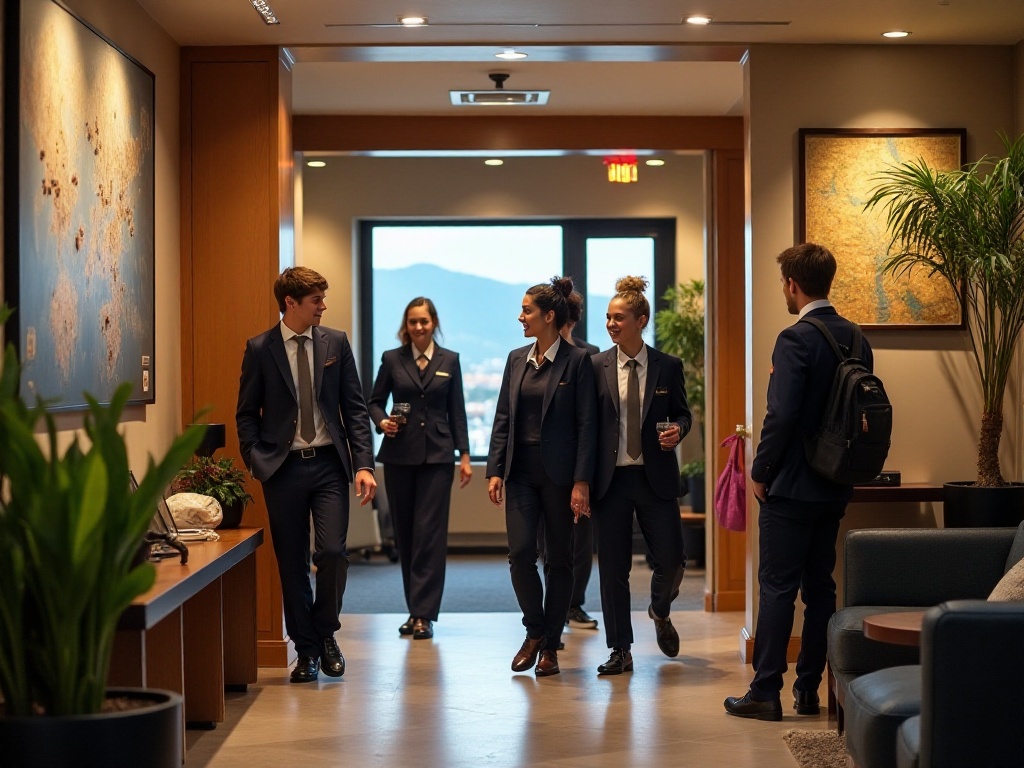
Complete Guide to Working Holiday Visas: Travel the World While Earning Money - A First Travel Guide for Young People
A comprehensive guide to Working Holiday programs, covering visa requirements, popular destinations including Australia and New Zealand, employment opportunities, and support services for participants aged 18-30

